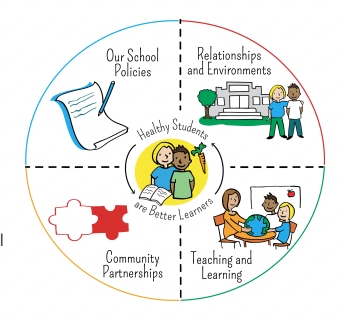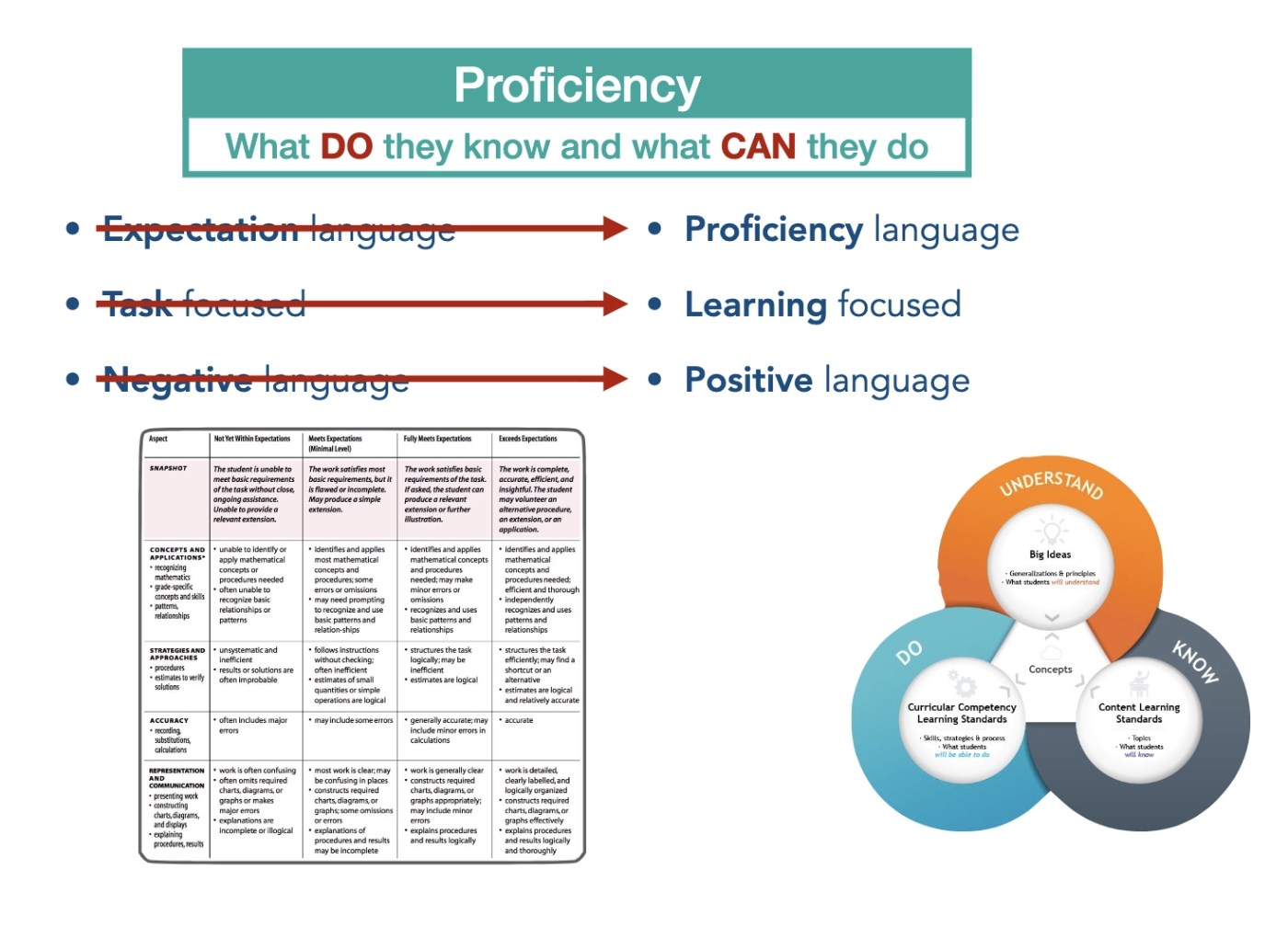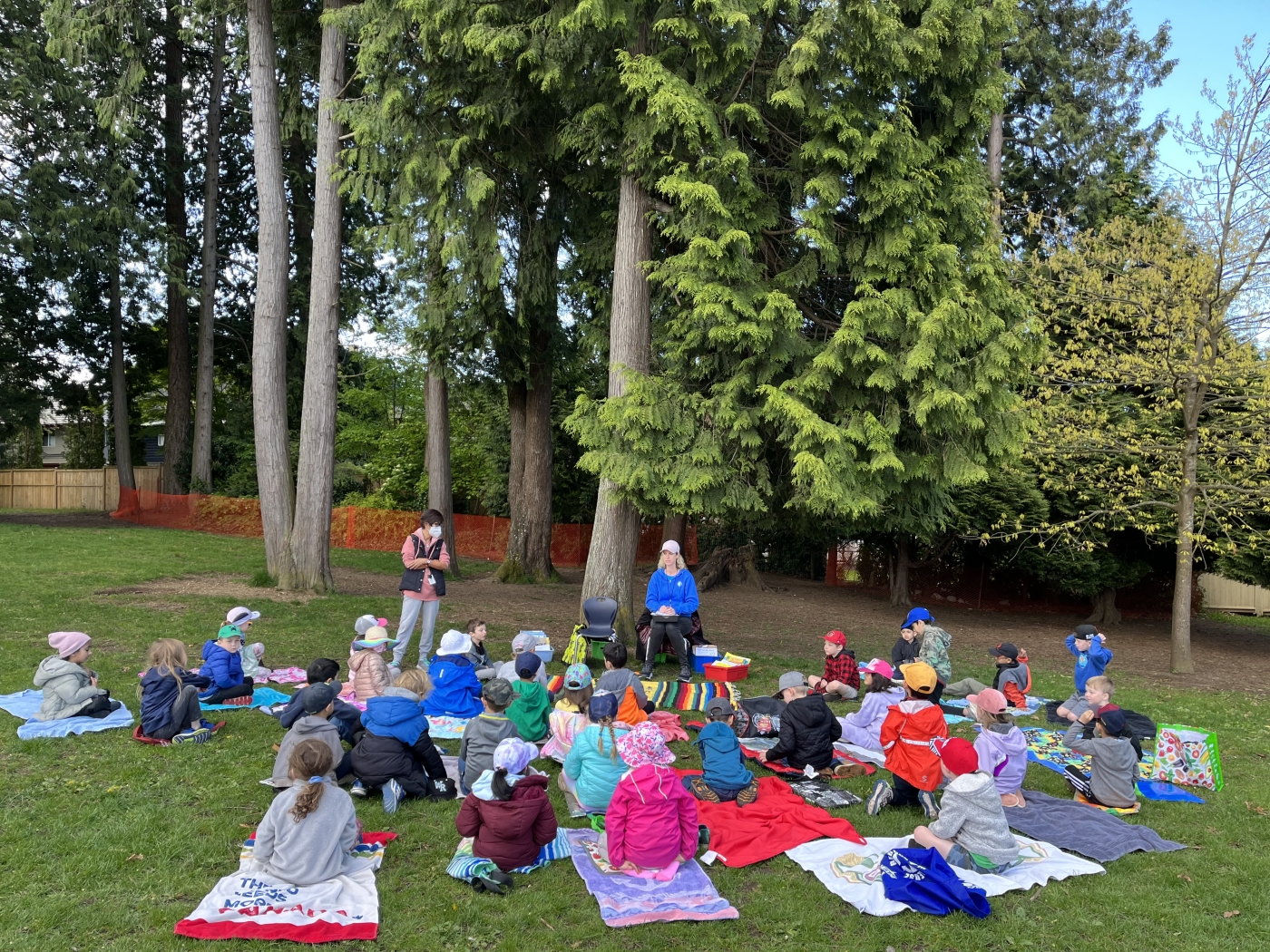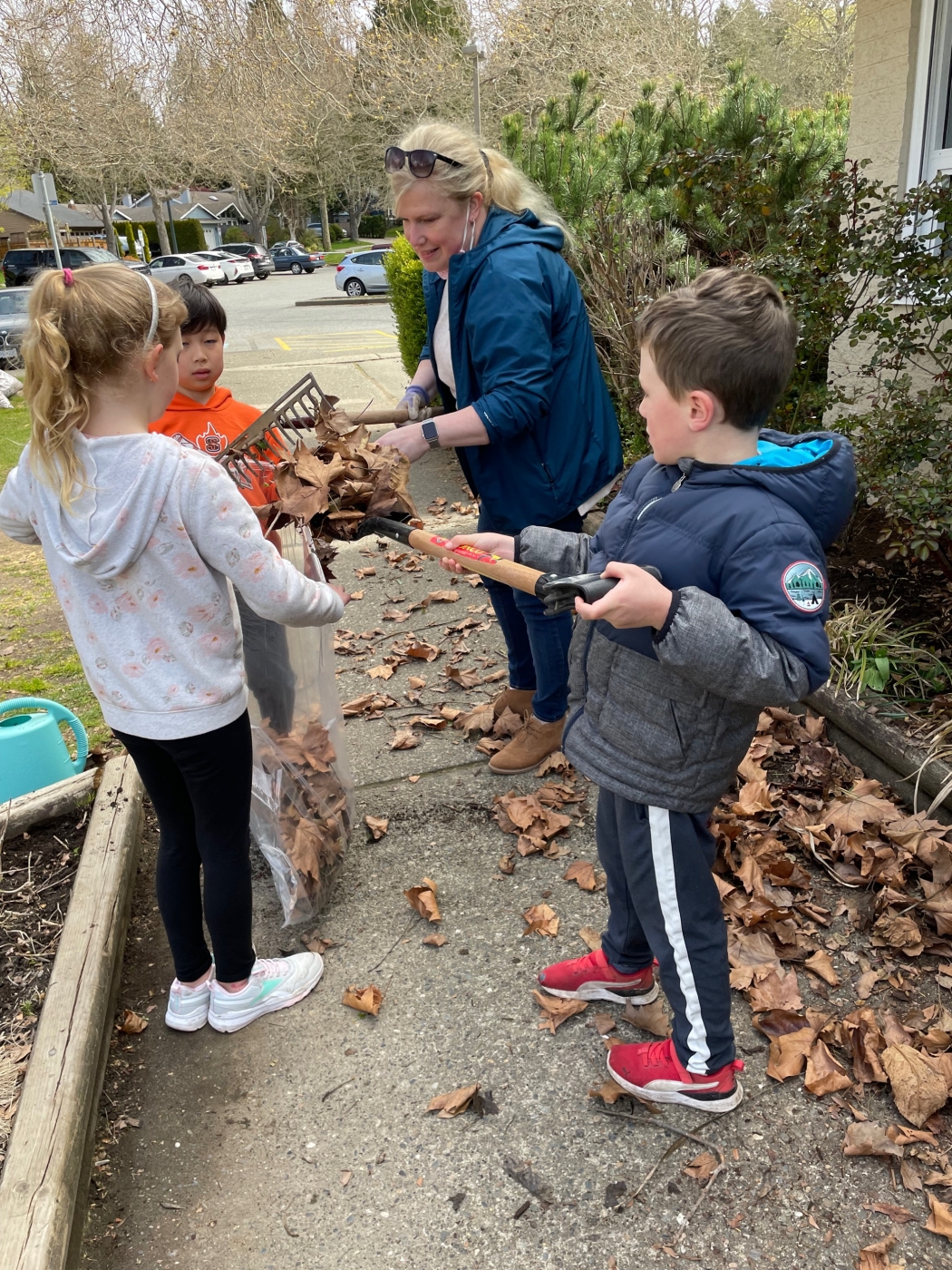École Ocean Cliff
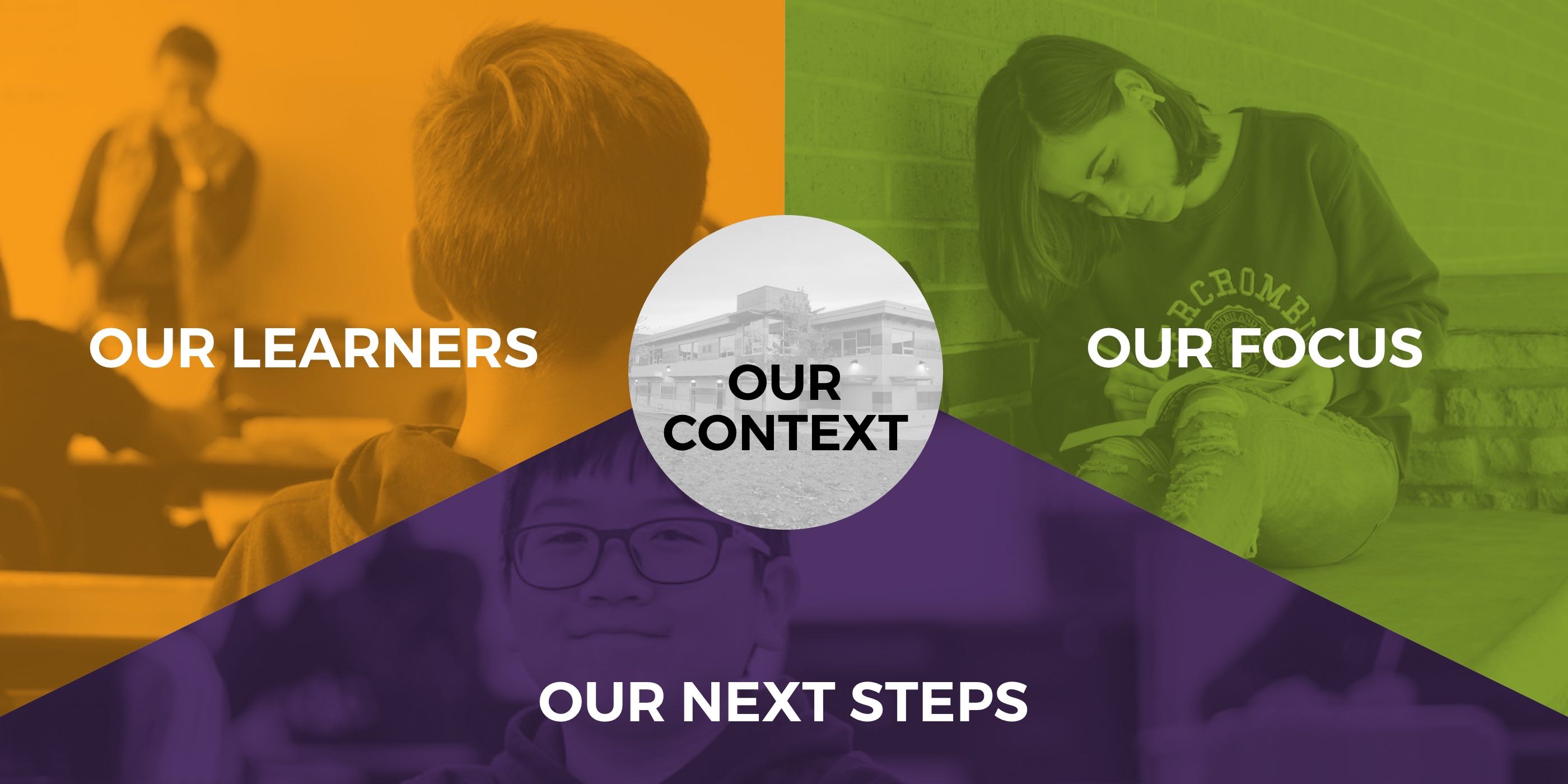

OUR CONTEXT
Ocean Cliff Elementary is a K-7 school in a well-established residential neighbourhood in South Surrey. Staff and students enjoy many opportunities for outdoor learning and we are fortunate to have access to many unique outdoor spaces including our “secret garden” outdoor classroom. Our school is bordered by mature wooded areas and we are located a short walking distance from Crescent Park, Crescent Beach and 101 Steps.
Ocean Cliff is home to an Intensive French choice program. Students in this program receive accelerated French as a Second Language instruction in their grade six and seven years with the option to continue with Intensive French in secondary school.
Our school is well supported by an active Parent Advisory Council that subsidizes field trips and classroom needs, supports families in need and hosts well attended community events such as an annual fun fair. The OC PAC works hard to support the needs that are identified by staff with funding support and offering volunteers whenever needed.
Ocean Cliff offers many extracurricular athletic opportunities for students including basketball, volleyball, ultimate frisbee, soccer, track and field, ultimate frisbee and running club. Other opportunities include student leadership, reading link challenge, grade seven band and choir. Special learning opportunities this year have included a school pumpkin patch, young entrepreneurs, "We Scare Hunger", science fair, Tomatosphere, raising butterfly larvae, gravity track challenge, Minecraft challenge and a Christmas concert.
Teachers at Ocean Cliff are committed to professional development and life long learning. This year several teachers are involved in the following professional initiatives:
- Responding to Readers
- Standards Based Math Assessment Inquiry
- Professional Book Club (Onward by Elena Aguilar)
- Spaces Digital Portfolio Pilot
- Imaginative Education Post-baccalaureate
- Racial Equity Training
OUR LEARNERS
We believe that a foundation of social and emotional learning needs to be in place to support learning in all other areas. According to CASEL “SEL efforts both contribute to and depend upon a supportive school environment with strong and positive relationships. How students feel in school—whether they feel connected to their teachers, other adults in the school, or each other—is a powerful contributor to their personal and academic success. Adults in the school help shape this environment by practicing and modelling their own SEL, while working together to continuously improve students’ learning and experiences."
We are working towards embedding SEL in all learning experiences through a systemic school wide approach. In particular we are focused on building student capacity with applying a growth mindset to learning, social responsibility and self-regulation.
Growth Mindset
Our students can persevere through challenging tasks and solve problems. They approach learning with an open mind and apply thinking and learning strategies suited to the task at hand. They understand that learning takes patience and time. They reflect on and assess their experiences, thinking, learning processes, work, and progress in relation to their purposes. Students give, receive, and act on feedback and set goals individually and collaboratively. They determine the extent to which they have met their goals and can set new ones.
Curricular Connections:
Use innovative thinking when solving problems- Grade 5 Career Education
Demonstrate curiosity and a sense of wonder about the world- Elementary Science
Generate and introduce new or refined ideas when problem solving - Grade 1 Science
Develop and use multiple strategies to engage in problem solving. - Grade 3 Mathematics
Develop, demonstrate, and apply mathematical understanding through play, inquiry, and problem solving. -Elementary Mathematics Curriculum
Take creative risks to express feelings, ideas, and experiences. -Grade 7 Arts Education
In this example a grade 4/5 class read the book "Going Places" to reflect on approaching tasks with a growth mindset to lead into building their gravity cars.
Self-Regulation:
Our students are resilient. They take ownership of their choices and actions. They set goals, monitor progress, and understand their emotions, using that understanding to regulate actions and reactions. They are aware of a variety of strategies that help them recognize and manage their feelings and emotions and to calm themselves when they are upset.
Curricular Connections:
Identify and appreciate their personal attributes, skills, interests, and accomplishments and their growth over time- Grade 5 Career Education
Set realistic short- and longer-term learning goals, define a path, and monitor progress. - Grade 5 Career Education
Recognize the need for others who can support their learning and personal growth. - Grade 5 Career Education
Differentiate between short- and long-term causes, and intended and unintended consequences, of events, decisions, or developments (cause and consequence)- Grade 6 Social Studies.
In the video below students comment on the strategies they have learned to self-regulate when feeling strong emotions.
Social Responsibility:
Our learners contribute positively to their family, community, and environment; empathize with others and appreciate their perspectives; resolve problems peacefully; and develop and sustain healthy relationships. They show empathy, disagree respectfully, and create space for others to use their voices. They generate, use, and evaluate strategies to resolve problems. They understand that learning involves recognizing the consequences of one’s actions.
Curricular Connections:
Demonstrate respect for differences in the classroom. - Grade 5 Career Education
Develop and demonstrate respectful behaviour when participating in activities with others. Grade 2 Health and Physical Education
Identify and describe characteristics of positive relationships. Grade 2 Health and Physical Education
Identify fair and unfair aspects of events, decisions, or actions in their lives and consider appropriate courses of action (ethical judgment)- Kindergarten Social Studies
Reflect on their design thinking and processes, and evaluate their ability to work effectively both as individuals and collaboratively in a group, including their ability to share and maintain an efficient co-operative work space-ADST Grade 7
Exchange ideas and perspectives to build shared understanding- Grade 3 Language Arts
In the video below students comment on the social problem solving strategies that they have learned.
OUR FOCUS
Students need to feel safe, settled and supported to learn their best. By pursuing a systemic school wide approach to social and emotional learning we hope to impact academic outcomes by making sure that students have the SEL strategies they need to be effective learners. Ocean Cliff staff are implementing various structures and strategies to support our focus areas of growth mindset, self-regulation and social responsibility with several cohorts of students.
Our focus areas include
- Promoting growth mindset in numeracy with standards based assessment
- Fostering self regulation through regular outdoor learning opportunities
- Improving social problem solving using the Second Step curriculum
Promoting Growth Mindset in Numeracy with Standards-Based Assessment
Our grade seven cohort are working with district helping teachers to explore standards-based assessment in numeracy. The inquiry dives into the importance of shifting from task-based assessment to standards-based assessment. Task-based assessment is content driven, with marks and expectation language. It usually involves quizzes, journal prompts, projects, etc. whereas, standard based assessment is around the learning standards with content and competencies. Tasks can still be used but it is also complemented with conversations, observations, and products. The focus is on the evidence of the learning. Students provide new evidence of learning and use positive proficiency language.
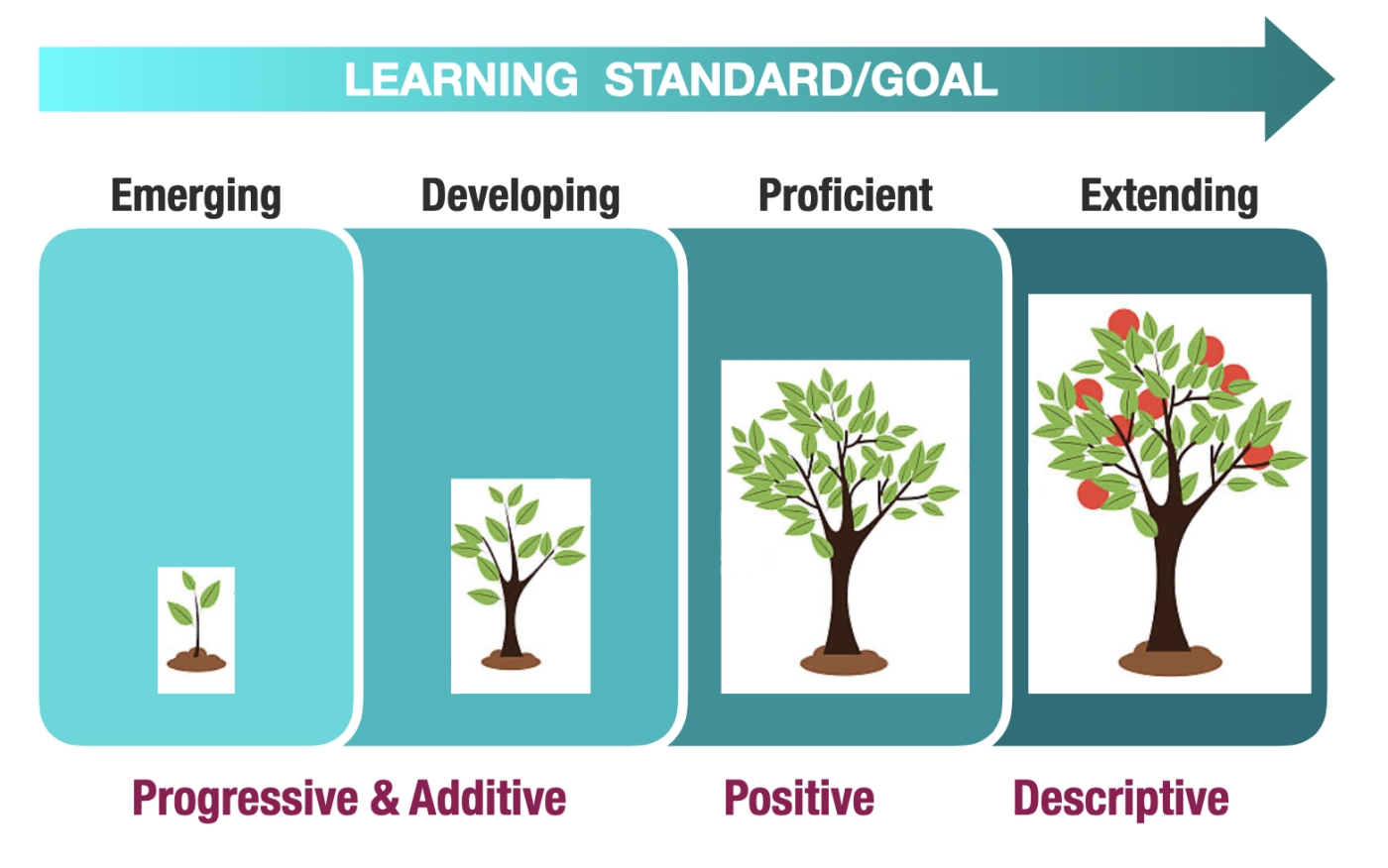
Fostering Self-Regulation Through Regular Outdoor Learning Opportunities
Evidence shows that outdoor learning opportunities for students promote self-efficacy, social connectedness, problem solving, resilience and academic performance by boosting self-confidence and creativity, fostering pride and a sense of belonging and improving cooperation, honesty, trust and compassion (Slee and Allan, 2019 )
Several classes ranging from K-7 are finding regular opportunities to bring learning outdoors. Recent outdoor learning opportunities have included:
- Brain breaks outside
- Lessons in the "secret garden"
- World Outdoor Classroom Day
- Shoreline cleanup
- Grade 7 camp
- Earth day activities and outdoor clean-up
- Crescent beach and crescent park visits
- Think outside Thursday
Pictured below are Kindergarten students celebrating Outdoor Classroom Day, Grade 2/3 students taking care of our school garden and intermediate classes participating in a shoreline clean-up at Crescent Beach.
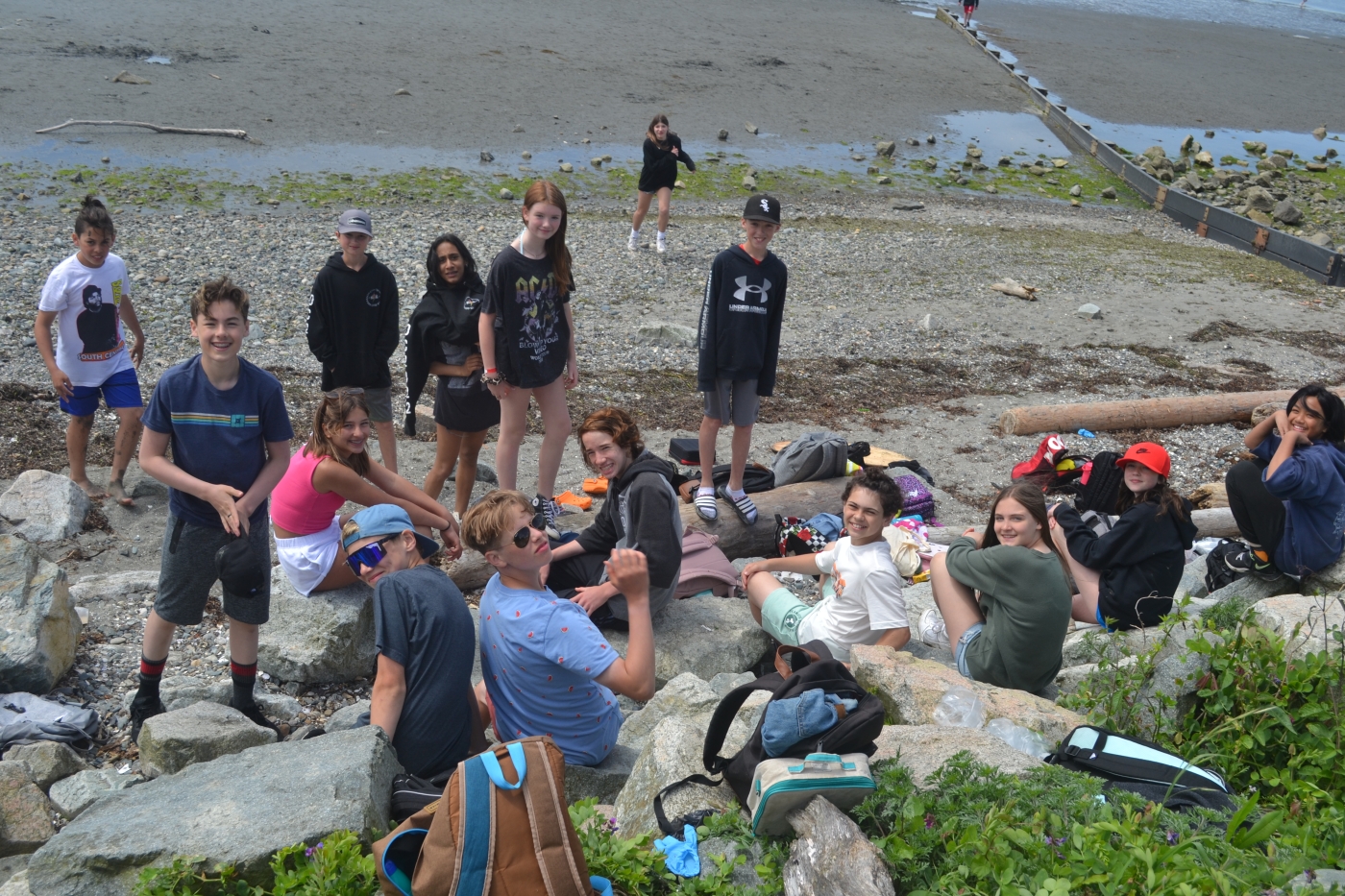
Improving Social Problem Solving Using the Second Step Curriculum
Currently a grade 3/4 class and a grade 4/5 social problem solving group are exploring the Second Step Program, an evidence based school wide curriculum that teachers social problem solving and self regulation. According to CASEL, SEL goals are more likely to be achieved when evidence-based approaches are used to engage all students across PreK-12th grade classrooms.
Effective SEL approaches often incorporate four elements represented by the acronym SAFE:
SEQUENCED: Connected and coordinated activities to foster skills development
ACTIVE: Employing active forms of learning to help students strengthen new skills
FOCUSED: Dedicated time and attention to developing personal and social skills
EXPLICIT: Targeting specific social and emotional skills
Through this curriculum students receive regular targeted, structured and sequential opportunities to explore and practice a variety of social problem solving skills.
Pictured below is a social problem solving task from the Grade 5 Second Step curriculum.
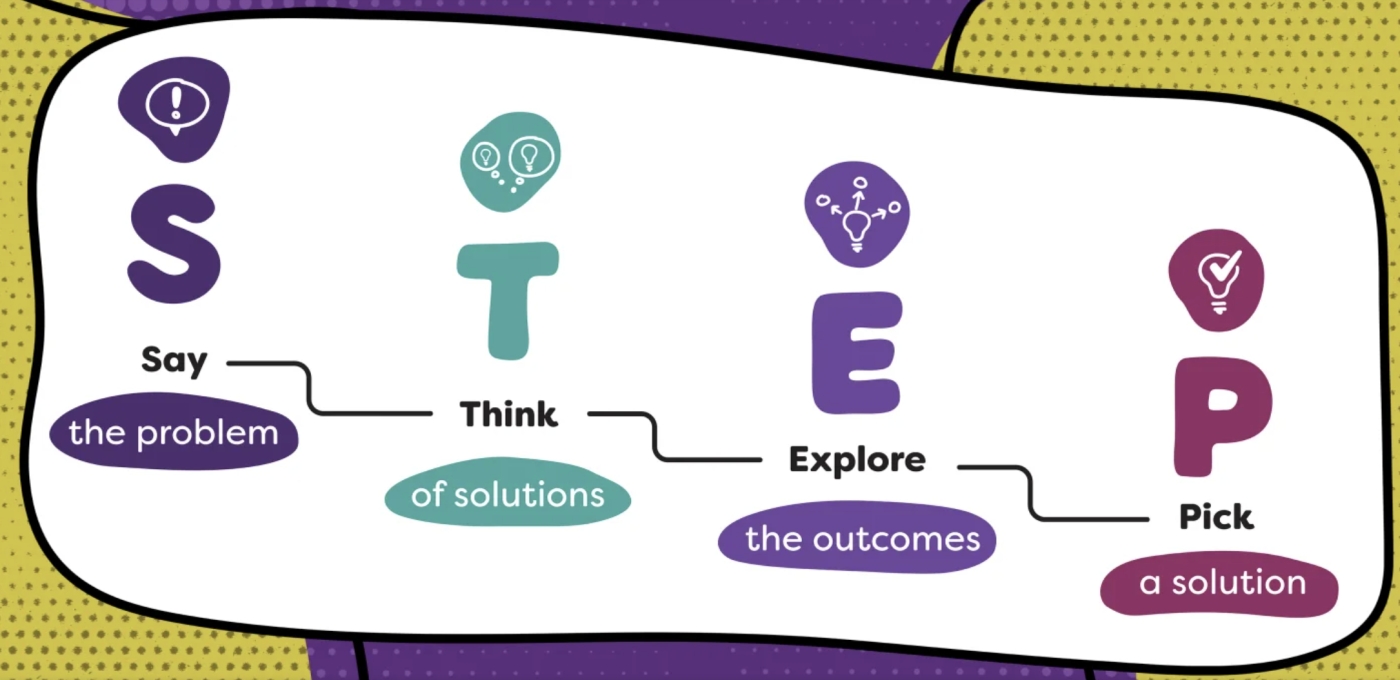
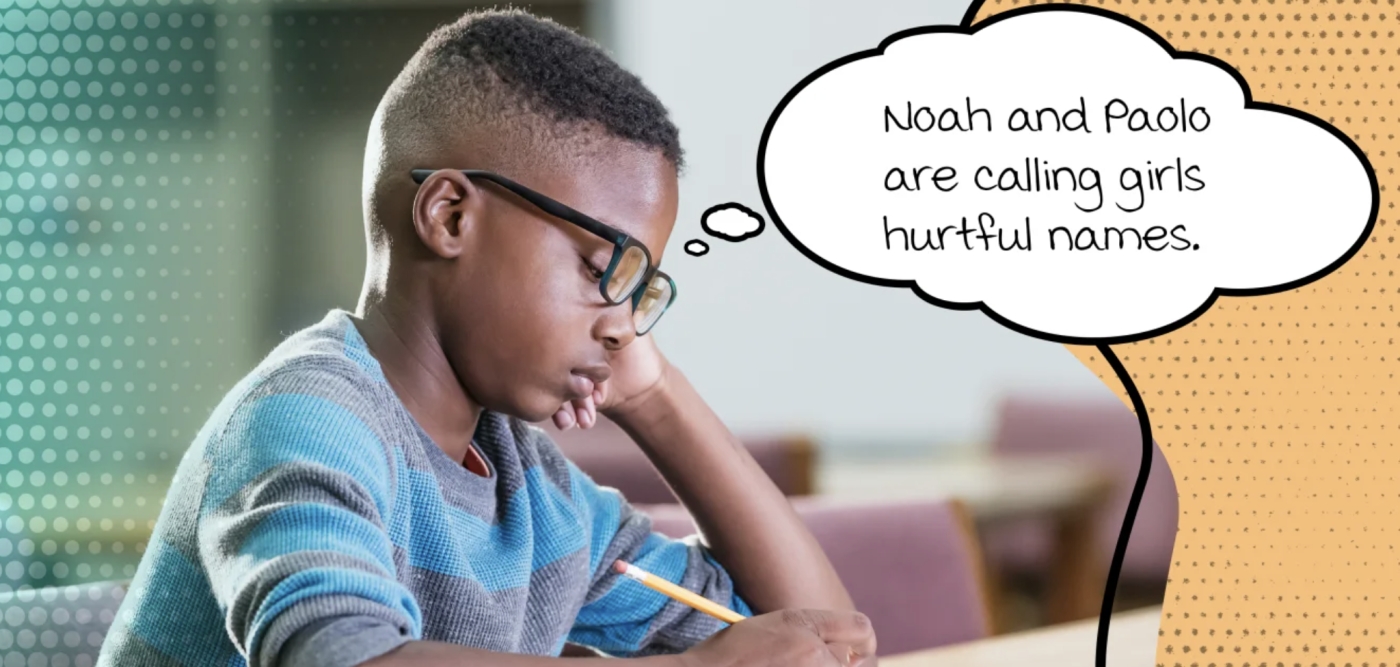
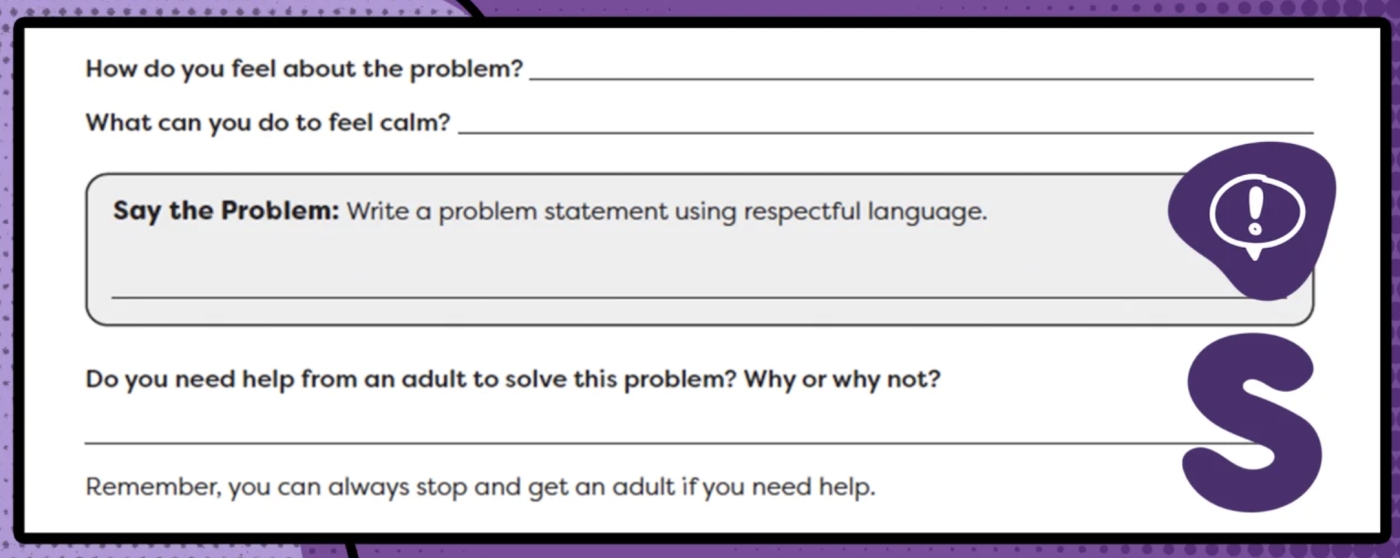
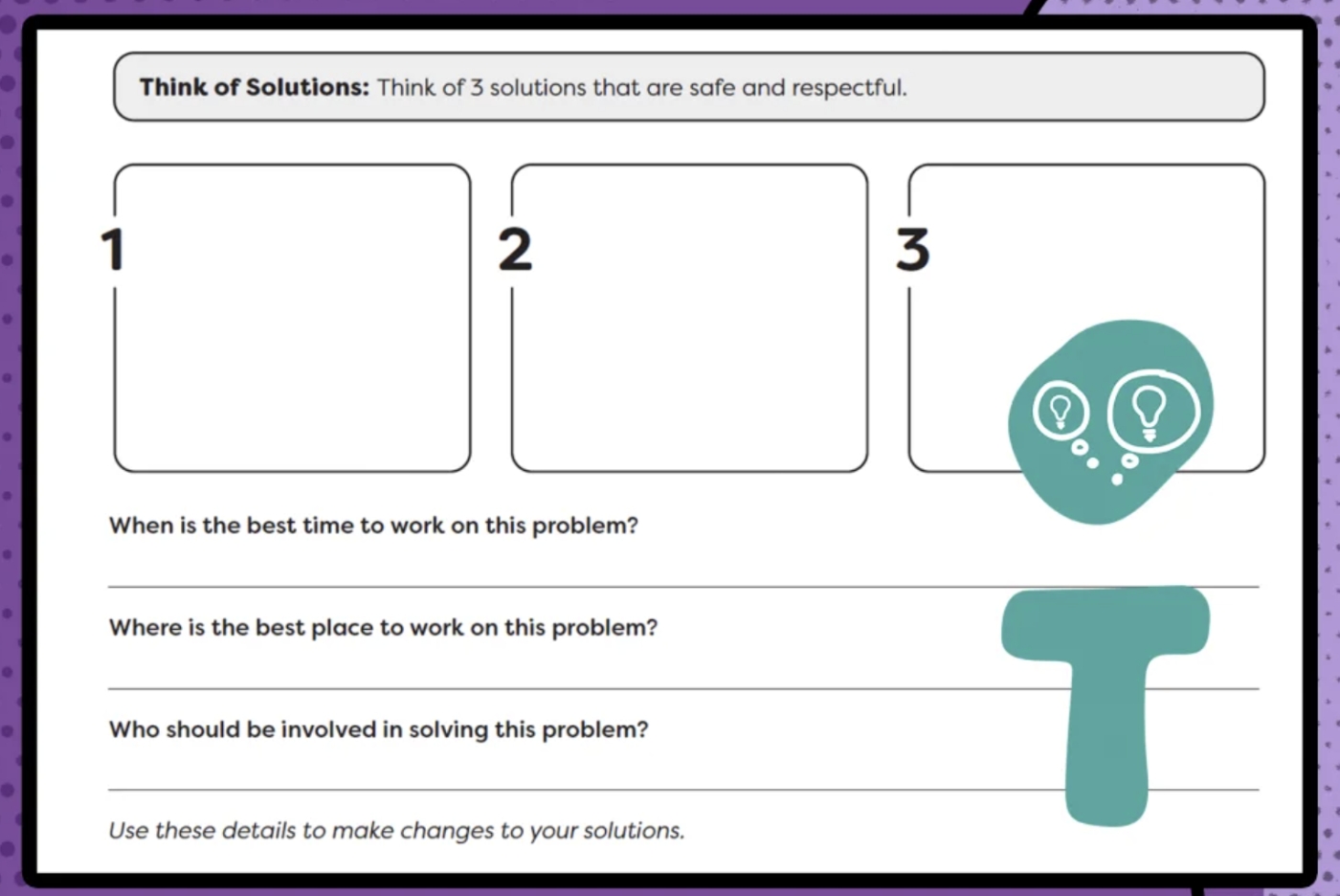
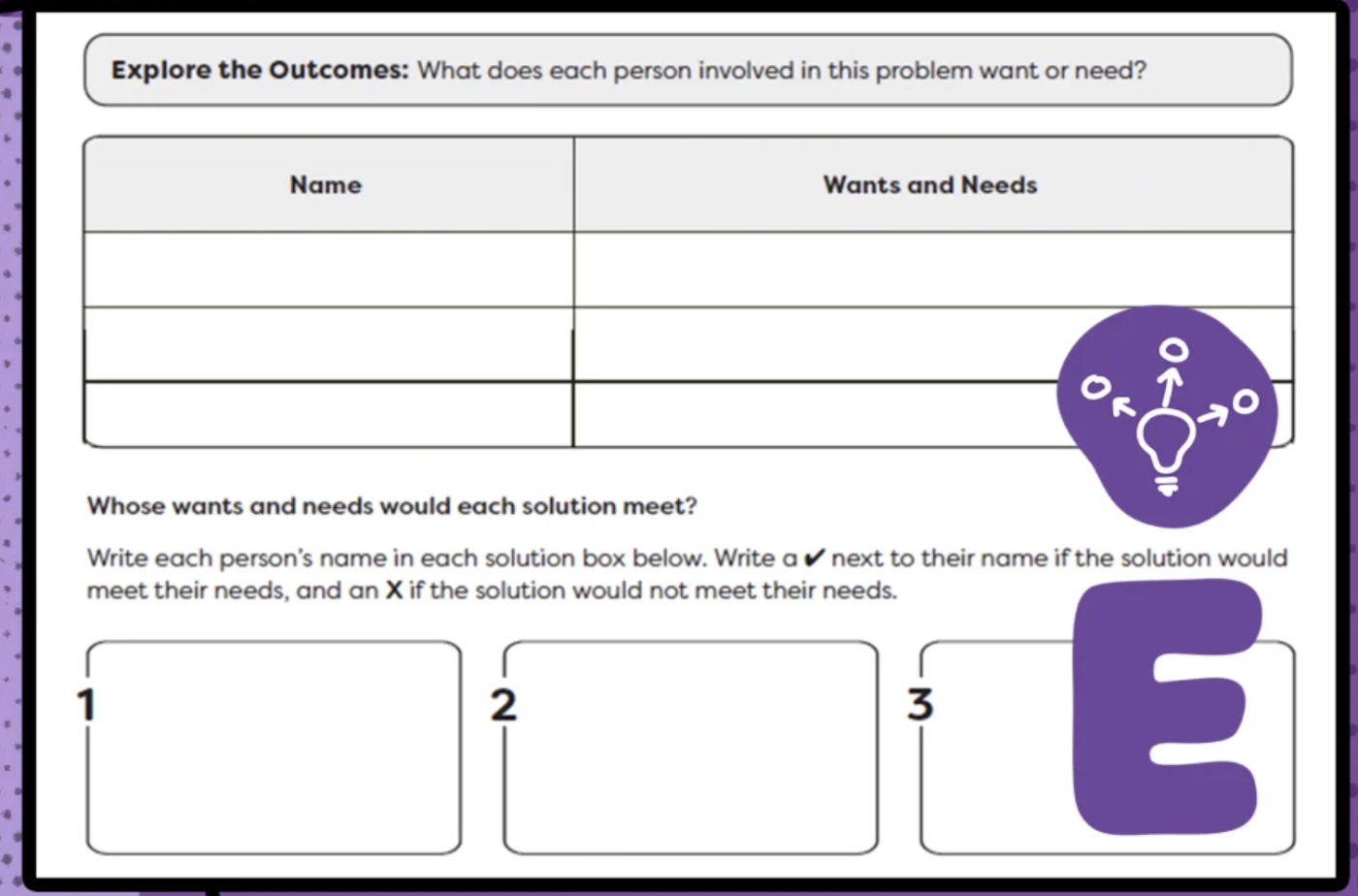

OUR NEXT STEPS
A variety of evidence shows that students are benefiting from a systemic and focussed approach to social and emotional learning and we look forward to building upon and expanding our focus areas next year.
Promoting Growth Mindset in Numeracy with Standards-Based Assessment
In our grade 7 cohort, having strength-based descriptors in numeracy with a focus on what students can do with an additive component has led to a positive shift in students’ mindset .They recognize that everyone starts at Emerging and layers on the skills and concept that they ‘can do’ to demonstrate their understanding and what they have learned. Our evidence comes from classroom observations, student comments, and in how the students use the math rubrics to self-assess their learning. 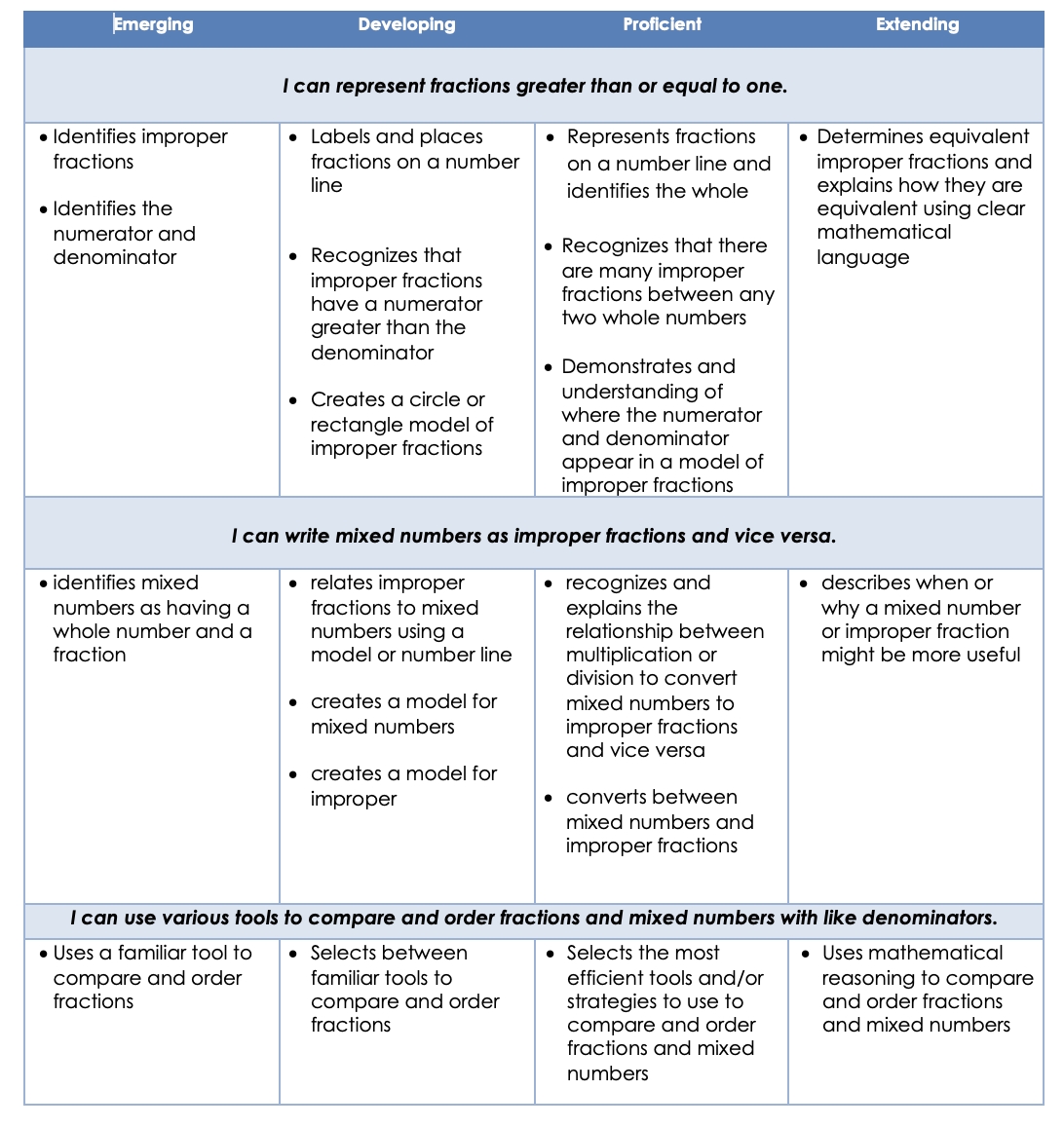
In this example a grade seven teacher and student reflect on learning with the use of a standards based assessment rubric.
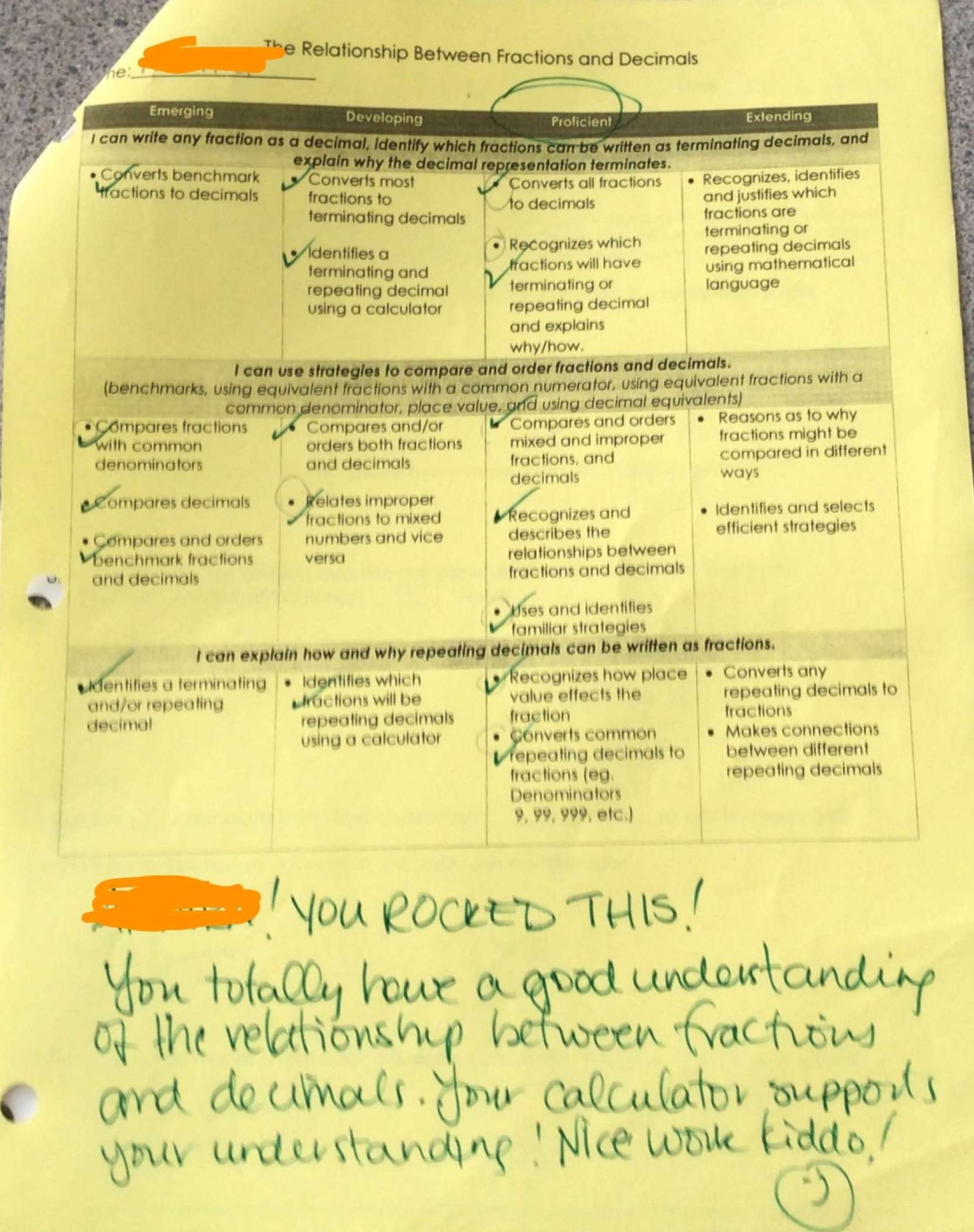
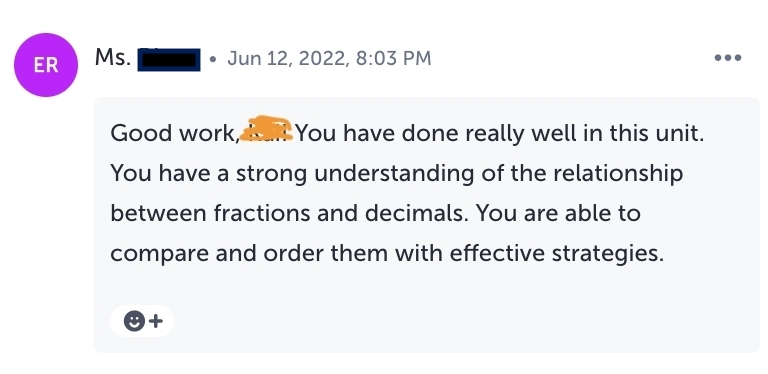
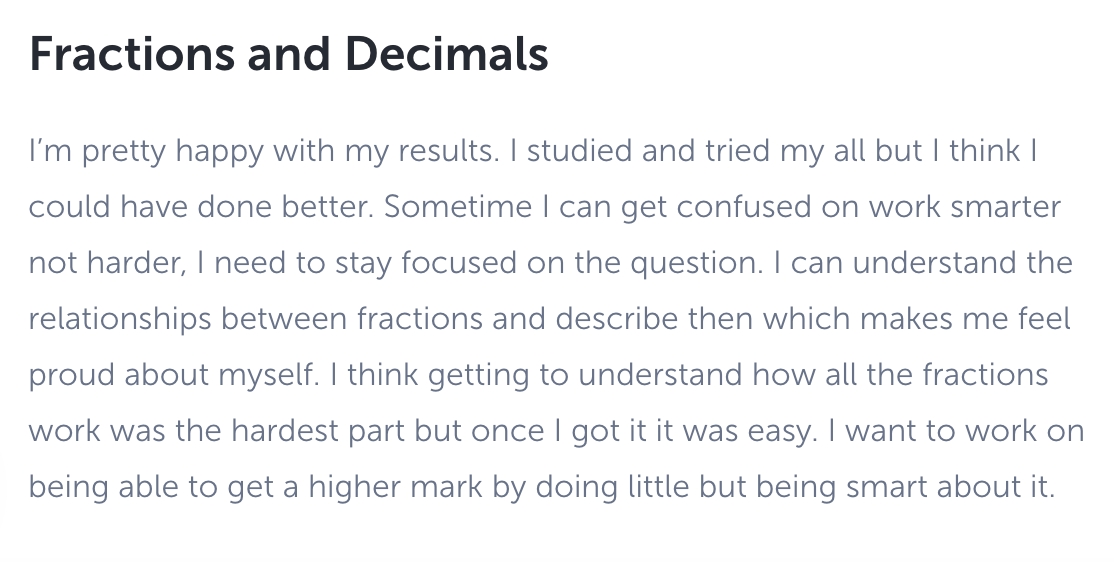
Fostering Self-Regulation Through Regular Outdoor Learning Opportunities
Our students are demonstrate noticeably improved self-regulation during and after outdoor learning opportunities as evidenced by these teacher reflections:
During these experiences, I see gentleness in my students as they interact naturally with the learning, self-regulation as they engage in what becomes relevant to them in a natural way. Differentiation is embedded in design as student sensory experiences are uniquely attended to by Mother Nature herself. In reading student reflections, I have yet to read a student who did not enjoy their experience outside. The initial uncertainty I had with covering content outside has been dispelled. The day to day result is the outdoors has become an understood brain break, work place, and not just there for a ‘recess’ break. - Grade 4/5 Teacher
In Grade 6 & 7, we have found that our outdoor learning experiences were well received by our students. Being outside and moving their bodies, gave our students the ability to move as fast or as slowly as they needed to in order to focus on their learning tasks. If they had a lot of energy, they could self-regulate by adjusting to meet their own needs. The students have told us that the fresh air and taking their learning outdoors in the mornings gave them the energy they needed to carry on throughout their day. Think Outside Thursdays have been a valued part of our classroom routines. There were very few moments where we need to redirect students back to their learning tasks. The smiles on their faces tell us they are engaged and enjoying the learning outdoors and that they understand that what they are learning doesn't just 'live' inside the classroom walls.- -Grade 6/7 Teacher
In this example a grade 4 student reflects on their learning after creating art outside using natural materials based on the work of Andy Goldsworthy.
Improving Social Problem Solving Using the Second Step Curriculum
Our students are increasingly able to apply a variety of strategies to solve social problems and disputes. They generate, use, and evaluate strategies to resolve problems. They understand that learning involves recognizing the consequences of one’s actions. In the video below two students summarize their social and emotional learning in division 7 this year including lessons from Second Step and other programs.
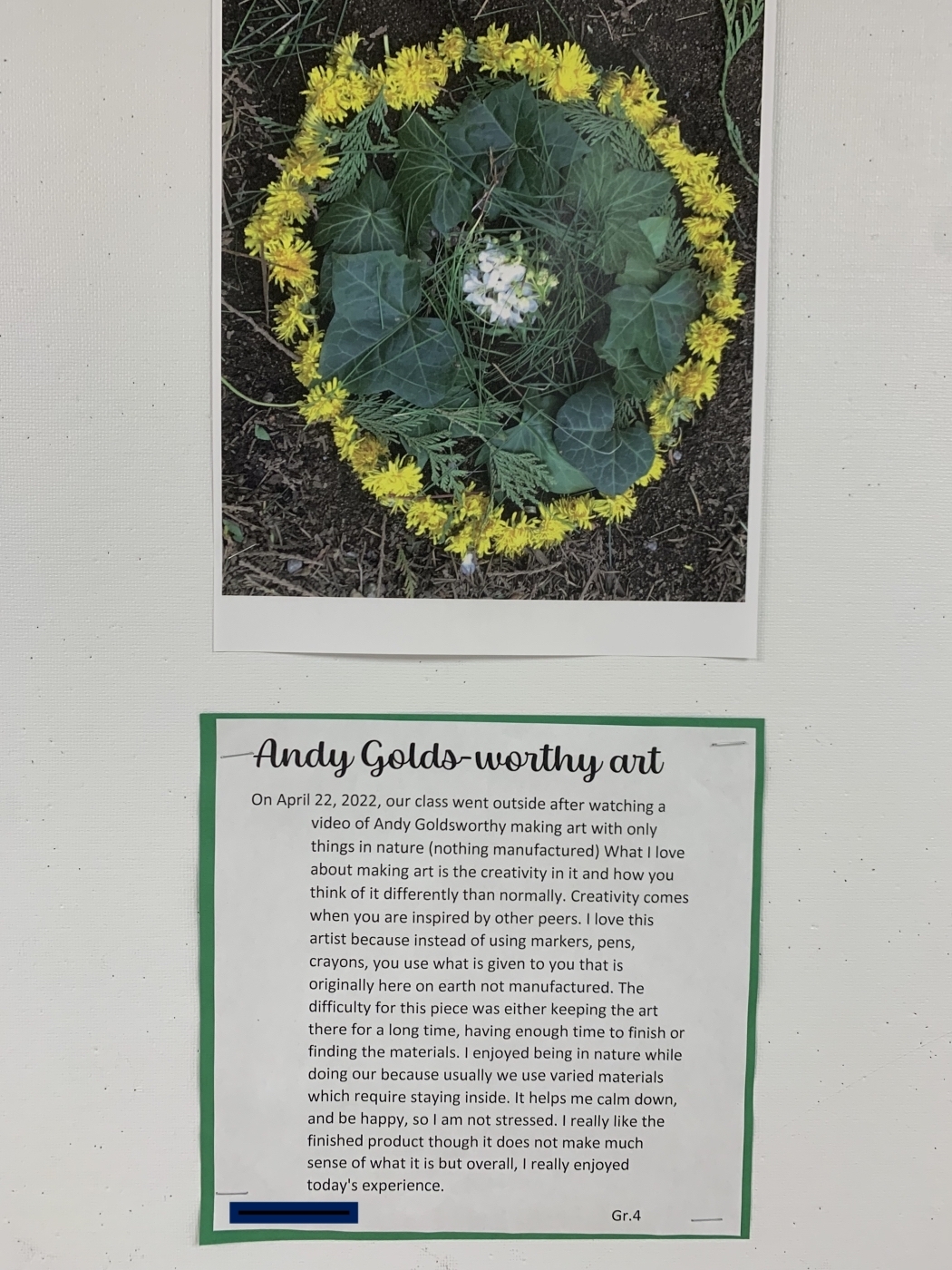
Moving Forward
- School Wide SEL Initiatives- Many teachers have committed to implementing the Second Step curriculum in their classrooms next year. We look forward to promoting school wide activities such as "Wellness Wednesdays" and "Think Outside Thursdays" that connect to our SEL goals.
- Teacher Book Study- This year teachers discussed Onward by Elena Aguilar to learn more about cultivating emotional resilience. We look forward to choosing a new book study for next year linked to our school wide SEL goals.
- Loose Parts- A committee of teachers will be creating a library of shared "loose parts" materials to promote universally designed, growth mindset oriented tasks in literacy, numeracy and other areas.
- Comprehensive School Health- This spring, teachers participated in a professional development workshop by DASH BC about implementing a Comprehensive School Health Framework. Next year a committee will meet regularly to take steps to implement this framework.
